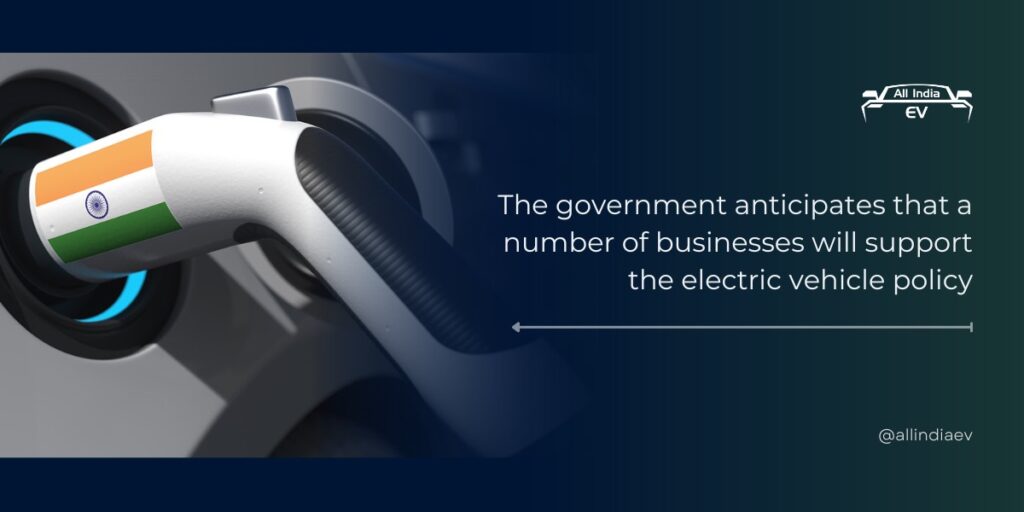
India’s New Electric Vehicle Policy Expected to Attract Major Global Players
The Indian government has set its sights on attracting major automobile companies to its electric vehicle (EV) sector through a new policy unveiled in March. This ambitious move is part of a broader strategy to position India as a global hub for EV manufacturing. Rajesh Kumar Singh, the Secretary in the Department for Promotion of Industry and Internal Trade (DPIIT), expressed optimism about the policy’s potential to draw interest from several global players, including the renowned U.S.-based EV manufacturer, Tesla.
Singh shared these insights at the annual business summit organized by the Confederation of Indian Industry (CII). He highlighted that while Tesla is often the focus of discussions, the government expects numerous responses from various companies to this forward-thinking policy. Approved on March 15, the policy introduces a series of tariff adjustments designed to encourage EV manufacturers to set up operations in India without incurring additional costs.
Key Provisions of the EV Policy
Under the new policy, companies that invest a minimum of USD 500 million to establish manufacturing units in India will be eligible for significant duty concessions. These companies will have a three-year window to set up their manufacturing facilities and start commercial production of electric vehicles. Furthermore, they must achieve a domestic value addition (DVA) of 50% within five years.
A notable incentive is the reduced customs duty on imported vehicles. Companies establishing EV manufacturing units in India can import a limited number of completely built units (CBUs) at a reduced customs duty of 15% on vehicles priced at USD 35,000 and above. This concession is valid for five years from the date of the government’s approval letter. Currently, CBUs imported into India are subject to customs duties ranging from 70% to 100%, depending on the engine size and the cost, insurance, and freight (CIF) value of the vehicle.
Encouraging Domestic Manufacturing and Investment
The policy’s primary aim is to transform India into a significant player in the global EV market by fostering domestic manufacturing and attracting investments from leading global EV manufacturers. The government has already secured investment commitments in the tire sector from two major multinational companies. Singh revealed that these companies approached the government with requests to import certain products that were on a restrictive list. In response, the government agreed to allow these imports, provided the companies committed to manufacturing those product lines in India. After receiving these commitments, the government granted the necessary relaxations.
India has implemented compulsory quality control standards for specific types of tires and included some in the licensing list to promote domestic manufacturing. Singh emphasized that such measures, along with prudent use of tariff and non-tariff policies, can help achieve the goals outlined under the production-linked incentive (PLI) scheme for investments.
Free Trade Agreements and Future Trade Policies
Singh also discussed the free trade agreement (FTA) between India and the European Free Trade Association (EFTA), which was signed in March. This agreement, involving Iceland, Liechtenstein, Norway, and Switzerland, includes significant investment commitments. India has secured an investment commitment of USD 100 billion over 15 years from this agreement, which also allows for lower or zero duties on various products, including Swiss watches, chocolates, and cut and polished diamonds.
Singh noted that several FTA negotiations are currently underway, and he anticipates a more open stance from India regarding these agreements. He advised the industry to prepare for a future with reduced tariff and customs duties, while also addressing any distortions and inversions in the tax regime that affect the competitiveness of Indian industries. The inverted duty structure, where inputs are taxed at higher rates than finished products, can lead to accumulated credits and increased costs, impacting the export abilities of Indian manufacturers.
To address these issues, DPIIT is conducting a cross-sectoral study aimed at rationalizing the duty structure through the GST Council and the finance ministry. The goal is to remove these inversions and improve the competitiveness of India’s manufacturing sector.
Conclusion
India’s new electric vehicle policy represents a significant step towards establishing the country as a global manufacturing hub for electric vehicles. With attractive incentives and a focus on promoting domestic manufacturing, the government is confident in its ability to draw interest from major global players. As the policy begins to take effect, India is poised to become a key player in the global EV market, driving innovation and investment in this rapidly growing sector.
(You can now subscribe to our All India EV WhatsApp channel)

